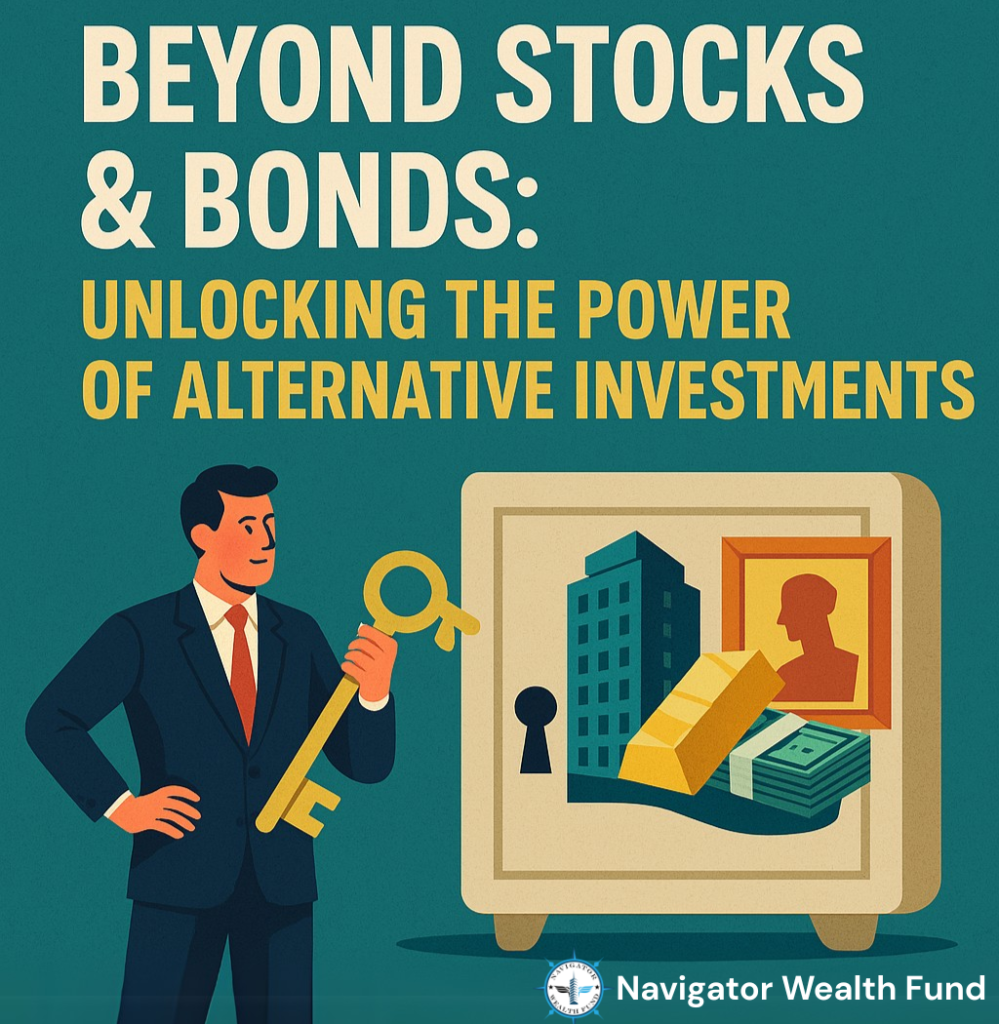
The Investment World is Bigger Than You Think
Most investors are conditioned to think of stocks, bonds, and mutual funds as their only options. However, the very wealthy and institutional investors have long been using a broader range of alternative investments to build wealth, hedge against market downturns, and create reliable income streams.
If you’ve ever wondered how to diversify your portfolio beyond Wall Street, alternative investments might be the missing piece in your financial strategy.
The Biggest Misconceptions About Alternative Investments
Despite their potential, alternative investments are often overlooked due to three common misconceptions:
❌ They’re too risky – While every investment carries risk, some alternatives provide greater stability than the stock market.
❌ They’re only for the ultra-wealthy – While some require large buy-ins, many are now accessible to everyday investors.
❌ They’re too complicated – With the right guidance, alternative investments can be just as manageable as buying traditional portfolios.
🤔 According to BlackRock, “Alternative investments are increasingly essential for building resilient portfolios in the face of economic uncertainty.”
What Are Alternative Investments?
Unlike publicly traded assets, alternatives operate outside the stock market, offering investors new ways to diversify and grow wealth. Some common types include:
✅ Real Estate – Rental properties, commercial developments, or passive investing through real estate funds.
✅ Private Equity – Investing in private companies before they go public or are acquired.
✅ Private Debt / Credit – Lending to businesses in exchange for fixed income returns.
✅ Venture Capital – Supporting early-stage companies with high growth potential.
✅ Hedge Funds – Actively managed funds designed to outperform the market.
✅ Commodities – Physical assets like gold, oil, and agricultural goods.
✅ Collectibles & Currencies – Tangible assets like rare art, coins, or foreign currency investments.
📊 Stat Check: U.S. pension funds have over $1.3 trillion allocated to alternative investments. (National Association of State Retirement Administrators)
Why Alternative Investments Matter
Alternative investments allow you to:
✔ Reduce stock market risk by diversifying into uncorrelated assets.
✔ Generate passive income through private lending, real estate, or dividends.
✔ Hedge against inflation with assets that appreciate in value over time.
Your Wealth Should Work on More Than Just Growth
Portfolio growth is important but true financial independence comes from diversified, income-producing investments that are built to weather storms.
By incorporating alternative assets into your strategy, you’re not just investing…
You’re building a future with more options, more freedom, and more resilience.
Want to explore how alternative investments fit into your portfolio? Discover how to invest like the ultra-wealthy.
👉 https://navwf.com/bonus
Disclaimer: The information provided in this post is for informational purposes only and does not constitute financial or legal advice. Please consult with a qualified financial advisor, CPA or attorney before making any investment decisions.
